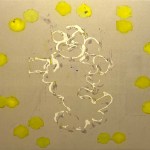
“The longer I live, the more convinced am I that this planet is
used by other planets as a lunatic asylum.” –George Bernard Shaw
Hold on, hold on, Harry said to himself as he scrolled back up the web site.
Academic couple in Westchester looking for reliable cat sitter for our cat. Must be willing to stay in our home, set on two private acres, mostly weekends but at times longer. Employment begins end of June and continues through fall. $100/day. References required. If interested DM me. Alice Wikam.
A hundred dollars a day to take care of a cat? Plus you get to stay in this person’s house? Harry stroked his imaginary beard—something he’d heard Mondrian did. The pay was beyond fantastic, and he loved cats. He’d have a cat himself except he was never home. Home was the apartment he’d grown up in, lived in for six years after that while getting his BFA and his MFA, then lived in for the following five years while taking care of his infirm parents. Now that his parents were gone (they had died three years ago, within three months of each other), he owned their wretched home, along with their frayed Irish lace curtains, their semi-broken TV, his father’s worn swivel chair, and his mother’s bric-a-brac.
Most of the time, Harry was either framing rich people’s art, part-time, at Howard Fine Arts Framing at the corner of 97thth and Broadway, or in his studio on 125th Street, reworking one of his large abstract paintings. On this particular June evening he was in his studio, but instead of painting he was scouring the internet in search of additional work to supplement his income. A full-time job would leave him no time for painting. All he wanted was a little more cash.
Harry’s mother Jayne was forty when she stunned her husband by announcing she was pregnant. The baby was named Aiden Jr., after his father Aiden Sr., but in first grade, out of the blue, little Aiden refused to answer to his given name and insisted he be called Harry. The Raffertys lived in a two-bedroom apartment in a coop building in Woodlawn Heights in the Bronx, which they bought with a mortgage they paid off the year Harry entered high school. At that point, Harry’s father was so into horses he worked only intermittently, while his mother, though chronically depressed, toiled away at the job of office manager at a nearby accounting firm.
Harry grew up drawing waterfalls, crocodiles, elephants, dinosaurs, monsters, He-Man figures, knights, castles, rocks, trees, and fancy doodles. In grammar school he was “the kid who could draw;” in junior high, the kid who could “ohmygod really make things look real.” His high school graduation yearbook had the words, “Most Talented Artist” written in script beneath his photo, and a shamrock next to his name.
How the shamrock got there Harry never knew, though it must have been put there by someone who didn’t like him. Although his parents loved their Irish heritage, Harry did not. He never wore green on St. Patrick’s Day, and when his father would belt out “Danny Boy” at family parties, his embarrassment so overwhelmed him he had to leave and take a walk. In the fall of his senior year, when Harry had grown to be over six feet tall and towered over his parents, he told them he wanted to go to art school. His father, who at that moment was stirring his special home-cooked cabbage, waved his spoon high in the air and yelled that Harry had gone mad and was a total loser. His mother wept even more copiously than usual and said art was a hobby, not a job.
“I don’t need your money, if that’s what you’re thinking, Ma,” Harry said. “Dad, do you hear me? Stop the spoon bit. Cabbage is flying everywhere. I’m saying I don’t need your money. My counselor says I’m a shoo-in for an art scholarship in a city college and I can get a loan. I’ve also lined up a job at a frame shop in Manhattan where I can work part time while in school. All I ask is that you let me keep living here while I’m in school.” His parents, angry and resentful, reluctantly agreed.
Harry arrived in art school wanting to learn how to make his photorealistic pencil portraits more perfect, but during his second year he had an epiphany. One morning he strolled into the painting studio and saw a strange and beautiful painting leaning against the wall. With a start he recognized it as a fellow student’s landscape, only upside down. Later he called this his Kandinsky moment, but at the time he thought only how stupid it was to try to make things look real when beauty is separate from subject matter. Or, as he told his befuddled parents, “The meaning of a painting doesn’t depend on recognizable images.” From then on, he painted only abstract pictures.
At twenty-seven, when he’d been out of his MFA program for three years and was painting away in the 125th Street studio he shared with Sandra, the girlfriend he fell in love in a graduate seminar on post-modern art, Adele Smart in Bushwick took him on and gave him his first show. “Pristine Geometric Paintings Reverberate with Color,” “Abstraction that Glows,” and “Harry Rafferty Points Abstract Painting in a New Direction,” were some of the review headlines.
But after Adele shifted her focus from abstraction to figurative art, Harry’s career flatlined. Caring for his parents, both of whom had had strokes, didn’t help either, for it left him barely any time to paint or be with Sandra, who was more and more avoiding him. He began drinking heavily—to the point where she finally lost it and screamed, “Harry, you’re nothing but a low-class, vulgar, Irish sot.” The next day she texted, “We’re through, Harry. I can’t let your depression drag me down. You’re not the only one struggling.”
*****
Harry sat up straight and typed his reply to Alice Wikam:
Hi Alice, saw your message and am extremely interested. I grew up with cats and like them and they really like me. Plus I have cat-sitting experience. I have a motorcycle and Westchester is an easy ride from where I live in the Bronx. Staying at your place for short or long stays would be no problem and I’m totally available this summer and fall. I work part time in a frame shop where I make my own hours. Please give me a call (cell below) or text me. I have references, of course. Yours truly, Harry Rafferty
Early the next morning, Unknown Caller popped up on Harry’s phone.
“Harry? This is Alice Wikam. Thanks for the quick response,” said a woman’s voice. “I checked you out on Instagram and see you’re an abstract artist. My husband and I love abstract art and we like your paintings very much. I also did a little googling and discovered your real name is Aiden.”
“Thank you. Thank you so much Mrs. Wikam. Yes, Aiden is my real name, but I’ve always gone by Harry.” People who sound desperate never get a job, so Harry didn’t immediately plunge into how good he was with cats.
“Please call me Alice, Harry. My husband Warren and I hold a joint appointment in the Literary Studies Department at Mount St. Mary’s College here in Westchester. This summer and fall we’re giving several lectures that require we be out of town. Most involve no more than two or three nights, but there’s one trip to LA in October that has us gone for over a week and one to London in November where we’ll be gone two weeks. Does this interest you? We need someone who can cover everything. Could you do this?
“I’m more than interested and yes it sounds absolutely possible for me,” Harry said. The thought of having a place to stay other than his dreary apartment that would pay him good money like this had him nearly swooning. “I mean, as I said in my text, my schedule is totally flexible, and I can work around your needs. I’ve got a motorcycle and can get to Westchester in thirty minutes.”
“But how will you paint while taking care of our Tommy? On Instagram I see large abstract oil paintings that I assume require a studio. We can’t offer anything like that.”
“No problem,” Harry said. The woman knew at least a little about painting. “True, I mostly make large abstract oil paintings, but I also make small watercolors that don’t make a mess and could easily do these in your home. Plus I’m a writer as well as a painter. In fact, at this moment I’m finishing a screenplay.”
What the hell? Where did this dumb lie come from? “To be honest, it’s my first screenplay,” Harry said, “but it’s going well and all it needs now are some finishing touches.” The irony in the words “to be honest” made him cringe. “Cat sitting would give me the opportunity to do just that. I can work on it while hanging out with Tommy.”
“Tell you what,” Alice said. “Get me two references by the end of tomorrow and if all looks good you can drive here Thursday and meet Warren and me—and Tommy as well, of course. If we hire you, your first stint would be the weekend after next while were away in Taos. The job is from Thursday evening through Monday noon. The pay would be for five days.
“No problem. I mean, thank you, it sounds great. Looking forward to meeting you.” Harry hung up and exhaled. He pushed the lie from his mind and focused on the five hundred dollars he’d get for doing next to nothing. Then he emailed Sandra and her parents, the only people whose cats he’d ever taken care of and begged them to recommend him as a cat-sitter.
******
By the time Harry pulled into the Wikam’s driveway two days later, he’d done his research on the couple. They turned out to be well-known academics in their late sixties who’d coauthored several books involving post-modern literary criticism. As he parked his motorcycle on the side of their curved macadam driveway, they stepped out the front door and stood like Beefeaters on either side of it. He waved, and to steady his nerves made a pretense of struggling to remove his helmet.
The house was a stunning piece of modern architecture set on a rocky landscape. It was the kind of architecture Harry had learned about in art school when he realized for the first time that, due to no fault of their own, his parents had execrable taste that he’d have to work his ass off to overcome. Even before stepping inside, the Wikam house stood for Harry as the epitome of taste. Its two cantilevered sections had gently sloping roofs and was mostly floor-to-roof glass windows. Ten or twelve steppingstones, edged with purple irises in full bloom, led from the driveway to the door. As he climbed the steps, he thought of Sandra, who was now married to a real estate broker and living in Brooklyn Heights. The house made him think of the many times she brought him home to spend weekends with her parents at their Richard Neutra house in Stamford, and the way they’d stoically pretended to like him.
Tall and slim, Alice was dressed in a long, black Mandarin-collar caftan and dangly silver earrings. She wore her winter-white hair short, and there was a piquancy to her expression that made Harry immediately warm to her. Warren was tall, probably the same height as Harry. Everything about him, from his blue oxford shirt and light brown khakis to his Robert Redford haircut proclaimed, “Hello there. I’m a WASP. What are you?”
In the living room, the Wikams sat two pillows apart on their white leather Knoll sofa, while Harry sat in one of the two matching armchairs across from them. In between was a glass-topped coffee table with a vase of pink peonies. Various cat toys lay scattered about the room, and in the corner was a built-in-bar that Alice nodded toward when she offered Harry a drink.
“A glass of water would be nice, thank you,” Harry said, longing for a beer but afraid of being taken for the sort who would drink and drive.
“Is that an Ad Reinhardt painting?” Harry asked, looking up at a square black painting hanging over the recessed fireplace.
“Knowing you’re an abstract painter, I would have been disappointed if you hadn’t recognized it,” Alice said. She then began peppering Harry with questions—how old was he (thirty-two), where did he live (the Bronx), where was his studio (125th Street), did he have siblings (no), how long ago had his parents died (three years ago, within three months of each other), did he have a partner (not since his parents died), when and why did he become an abstract painter (long story but it started in art school), how was his career going (great, absolutely great), and was he really trying to write a screenplay (oh yes).
“Do you know how hard it is to break into movies, Harry?” Alice asked.
“I think so,” Harry answered, feeling remorseful. “But I’ve got a great story and I don’t see how it can be any harder to break into movies than break into the art world.” Harry shifted gears. “I want to stress how much I like cats and I think Tommy and I will get along great.”
“She’s very shy, Harry. She was crawling around in the pachysandra out front when she heard the sound of your motorcycle and hightailed it out of there. Even if she’s come back inside, she may well be hiding. Don’t take it personally. Strangers have this effect on her.
“Wait, you’re saying Tommy is a girl cat?” Harry asked, surprised.
Alice laughed. “Crazy, I know, but when we went to the shelter five years ago we were determined to get a boy cat and had chosen the name before we got there. As soon as we saw this little adorable girl kitten, we knew we had to have her, so we took her and named her ‘Tommy.’”
“Actually, I think Tommy is the perfect cat for a gender fluid age,” Alice said. It was hard to know if she sincere or just teasing.
“Whatever. No problem by me,” Harry said. “As long as I know whether Tommy prefers the pronouns, ‘they/them’ or ‘him/her’ I’m down with the program.” Sensing his humor had fallen flat, he played his sophistication card: “Your home is gorgeous. Is it a Richard Neutra House?”
“Impressive. You know Reinhardt and now Neutra, too,” Alice said. “Hardly anyone knows the name Richard Neutra, especially here on the East Coast. Nor anything about modern architecture in general, for that matter. But no, it’s not a Neutra house. Neutra died in 1970, and this house wasn’t built until 2007.”
Warren stood up and proposed they tour the house and find Tommy. “Our architect was young and just starting out when he designed the house. You’re smart, Harry, to have guessed Neutra, as he was deeply influenced by him,” he said. As they walked into the kitchen Warren pulled out some soft-closing drawers that were beneath the countertop. “I often find Tommy sleeping in one of these. She climbs inside drawers by first getting into the spaces behind them.”
“She also likes to sleep behind the books on the bookshelves, where she’s completely hidden. It’s maddening for Alice and me, as we live inside a veritable ‘Library of Babel’—as in, the Borges short story. Oh, sorry, Harry, probably too obscure a reference for you.”
Alice pointed to the small cat door in the mudroom next to the kitchen. “Tommy is belled, which makes it next to impossible for her to catch birds. It’s good because most of the time you can hear the bell when she comes through the cat door.”
As they continued the tour of the house, Warren opened and closed more cupboard drawers and closet doors, all the while calling Tommy’s name. Two hallways led away from the living room, the first to the master bedroom with its dressing room and enormous bathroom, the second to two smaller bedrooms, a second bathroom, and an office with two desks piled with books and papers.
Harry followed the Wikams down the stone steps to the basement that, like the office upstairs, was lined with floor-to-ceiling bookshelves packed with books. It had now been more than half an hour, and still no Tommy. Alice said, “Don’t worry, Harry. This happens a lot, but I can almost guarantee she’s inside someplace.” She and Warren whispered something together. “Harry, Warren and I think you’re our perfect cat sitter and we don’t need to interview anyone else. Let’s go back upstairs and I’ll show you more about the mudroom and Tommy’s litter box and food. We feed her only dry food, so all you have to do is keep her bowl full.”
Warren showed Harry how to work the security alarm, lights, and air conditioning, as well as use the TV remote in the bedroom where he’d be staying. He gave him a set of keys and said they’d be leaving before he arrived on Thursday. At the door, Alice gave him a hug. “Remember,” she said, “If you have any problems or questions just text me.”
*****
It was Saturday morning and Harry was on all fours poking about the underbrush calling, “Tommy, hey Tommy.” Suddenly he became aware of someone standing behind him.
“You get it there’s no cat, right?” said a man’s voice.
“Uh, not quite sure what you mean,” Harry said, backing out of the bushes. He pushed himself up to his knees and looked over his shoulder. A man leaning on a garden rake who seemed to be about his age stood six feet away.
“I said, you get there’s no cat,” the man repeated.
Harry stood up and turned around to face him. “Well, I’ve been looking for her for 36 hours and still can’t locate her, so yes, I get it. This is pretty bad. My first time cat-sitting for the Wikams and I manage to drive away their cat. I guess it’s my last time too. Not good,” he said, wiping the sweat from his forehead.
“No, you’re still not hearing me,” the man said. “There is no cat. The Wikams don’t have a cat. They’ve never had a cat.” Harry stared at him. “Look,” he continued, “They’re nice people, but they’re fucking crazy. It took me a long time to figure out what I’m telling you now. I still don’t have a clue why they do this—why they pretend to have a cat. But if you want to keep your job you have to play along.”
“Play along? I don’t get it. I’m sorry, I’m really not following any of this,” Harry said.
“OK, I’ll try to make it simple. The Wikams have a cat door, cat food, cat litter, and cat toys. They tell lots of stories about their cat. But there is no cat. They’ve never had a cat. Once, before I knew there wasn’t a cat, I was searching all over the place for it and Alice showed me its picture on her phone. Later I figured out it was some random picture of a cat.”
Harry tugged at the brim of his baseball cap. “In other words you’re saying the Wikams are crazy. Frankly, I find that hard to believe. They strike me as really cool, together people. I mean, exactly how crazy are they? Crazy dangerous? As in kill me or something?”
“No, no, it’s not like that. They’re nice people who happen to have a pretend cat. Sorry, I’m George. My father and I have a landscape company and we’ve been working for the Wikams since they built the house fifteen years ago. I know what I’m dealing with here.”
“Like anyone who meets them,” George said, “you have to figure out for yourself whether or not you want to play along. I’ve watched a lot of cat sitters come and go—generally they’re gone after only one weekend. Me, so long as I’m paid, I’m fine. I’ve learned to say things to them like, ‘Hey, Alice, I just saw Tommy lying in the sun over near the vegetable garden and he’s looking great.’ She’ll laugh and say, “George, it’s a ‘she,’ and I’ll say ‘Oh, sorry, I keep forgetting.’ Then she’ll say, ‘We’ve been giving her a new food and spraying her coat with an oatmeal conditioner,’ or whatever, and I’ll nod and say, ‘It’s really working.’ She’ll smile and, well, that’s it. That makes her happy.”
“It seems ridiculous you do all that, but at least you’re being paid for real work, Harry said. “Me, I’m getting paid a whole lot to take care of a pretend cat. It makes no sense,” Harry said.
“Man, you’re still not hearing me. Don’t worry about the money. The Wikams are rich. I looked them up. They earn piles from all their lectures, podcasts, and royalties—in addition to their salaries. And just look around at this house and the property and the whole neighborhood. Everything. Think of this as you getting paid to play a role in their story. To have a real pretend cat they’ve got to get real people to see the pretend cat as real right along with them.”
Harry went inside and sat down at the kitchen counter, staring out the window at the row of hemlocks swaying gently in the warm breeze. What a stupid ass he was. His father was right, his dealer was right, Sandra was right. He was a loser. Anyone with half a brain would have figured out within an hour of arriving here that there was no cat—hell, they’d have figured it out the first time they met the Wikams.
Harry walked into the mudroom and looked down at the food and water bowls. Why didn’t he notice they’d never been touched? Then he walked into the living room, lay down on the sofa and stared up at the vaulted ceiling. He’d spent the whole of yesterday hunting for a non-existent cat. He’d opened and closed every drawer in the house, crawled into the farthest reaches of the closets, rifled through Warren’s file cabinets, and reached behind all the bookshelves feeling for fur. Today he’d spent most of the morning hunting for the thing. These were sickos—for God’s sake, they’re professors. For some reason, they’d conned him. The only time he’d ever felt this humiliated was when his father visited his studio, looked around for a minute and said, “This is a lot of nothing.”
Harry racked his brain for something that could explain the perversity of the Wikams. Were they Satanists? Maybe their real name was Wiccan, and they’d changed it to Wikam? Maybe just pathological liars? Or plain old sociopaths? Or had they drunk so much postmodern literary theory Kool-Aid that they saw cats as a social construct the way associating baby boys with the color blue is a social construct?
Harry sat up on the sofa, still trying to figure out what to do next. Finally he sent a text to Alice.
Alice, Sorry to bother you but you said I could text. I’m worried because I’ve been here since Thursday night and now it’s Saturday noon and Tommy hasn’t showed up. I’ve looked everywhere, including outside. Tomorrow is Sunday, and I can look again, but I’m leaving around noon Monday, as agreed, and I wanted to alert you to this situation now. I’ve never even caught sight of her, so thanks for the money but I can’t keep it. I’ll leave it where left it for me on the counter.
Best, Harry
Within a few minutes, Alice replied.
Harry, please don’t be stressed. I assure you Tommy will return. Even with us she sometimes disappears, and as we said, she’s shy with new people. Odds are she’s inside the house right now and won’t come out until we’re home. Why don’t you just spend tomorrow relaxing and working on your screenplay? The table with the umbrella near the flower garden has wi-fi and is a great place to work. As for the money, don’t be ridiculous. I insist you take it. You’re doing the job we hired you for and I’m absolutely certain she’ll show up when we get home Monday night.
She’d upped the ante. A true wack-job. Harry wrote back immediately.
Alice, in truth, although I didn’t actually see Tommy, I’m quite sure I heard her bell as she came through the cat door a couple times and the food level does seem to be down. She may be in the house after all. I’ll take you up on your suggestion and work on my screenplay all day tomorrow. Maybe she’ll show up. Best, Harry
Alice replied,
Good. Enjoy today and tomorrow and we’ll see you two weekends from now when we head to Chicago. I’ll text you later. Alice
*****

Over the rest of the summer, Harry came to the Wikam house to take care of Tommy six more times, each time for four or five days. The Wikams always arranged things so he arrived after they departed and departed before they returned. During the third gig, Alice began texting Harry on a daily basis. She’d write, “How’s Tommy today,” and he’d answer, “I think Tommy has learned to like me,” or, “Tommy just let me pet her,” and, “Last night Tommy slept curled up right next to me.” One time, when he was feeling particularly puckish, he texted, “Tommy loves chasing the green mouse toy down the hall.” Alice answered enthusiastically: “I knew it. I knew she’d come out for you and you two would really enjoy one another.”
By the time his 10-day cat sitting gig in October came around, Harry felt on top of the world. His painting was going well, and autumn was now strutting its colors. The air was cool and clear, perfect for daily walks in the Wikam’s neighborhood. This pretend cat business suited him, he decided. It was fun to make up stories about what a nonexistent cat was doing and rake in the cash for it.
Harry read Alice’s newest text just as he was returning from one of his walks:
See if you can get Tommy to fetch. We’ve tried but she won’t do it.
I tried too, but when I throw the ball, she looked at me like I’m crazy, Harry answered.
Did you try the green mouse instead of the ball? Maybe that would work.
On the second to last day of the ten days the Wikams were away in LA, something snapped in Harry. Suddenly, he saw the non-stop pretending as nothing but lies, and the meaningless of it all made him feel empty and exhausted. His text messages turned ironic:
Alice, I realized today that Tommy is so hard to find it’s a lot easier for me to work on my screenplay and simply wait for her to show up instead of trying to find her. Is that OK by you?
Yes, we never hunt for her for too long. Waiting for her to come to you is best.
Delving into the life of notional cat was rattling Harry’s grasp of reality. Harry loved Garfield Minus Garfield, the comic strip about a cat that once existed and then been removed; it was poignant and provocative. Tommy was nothing but Alice and Warren’s private invention.
On the day the Wikams were to arrive home, Harry texted Alice saying this time he would wait for them to arrive before leaving as he had something important to talk to them about.
When Alice walked through the door at around 9 p.m., she said to Harry, “What a long and miserable trip home. Delays everywhere. Warren I need a drink. Harry, will you join us?”
Drinks in hand, the Wikams sat close together on the sofa while Harry sat on the chair across from them, just as they’d done when they first met. This time, however, Harry was the interlocuter. “Warren. Alice. Tell me something. Why are you doing this to me? Please don’t play games and pretend you don’t know what I’m talking about when you know what I’m talking about.”
Harry thought he detected tears welling up in Alice’s eyes, but none spilled over. She looked down at her drink and said nothing. Warren sat motionless. Alice put her drink down on the table and said, “I was of course hoping this would never end,” she finally said.
“What would never end?
“Harry, do you know the saying, ‘Those who speak do not know and those who know do not speak’?” Alice asked.
“If you’re looking for a way to not answer me, that doesn’t help. You’ve been speaking plenty, only it’s all been lies.”
“Harry, that’s not true. We didn’t lie. Tommy was our way—.” Alice paused before collecting herself. “She was our path back to finding purpose in our lives after our son Mark was killed in a car accident during his senior year in college.” Alice turned her head to look up at the Reinhardt painting. “Mark wanted to become an architect. When we bought this property during his junior year, he visited the Neutra House in Stamford, and came up with a design for this house for us. After he died, we hired a real architect to take his plan and make it happen. He told us he barely had to touch it to make it work.”
“That’s a tragedy,” Harry said slowly, and with feeling. “And I feel for you. But even terrible grief doesn’t explain your craziness. It certainly doesn’t explain the meanness of dragging someone you don’t even know, like me, into your cat lie. All you needed to do was get a real cat, like real people do.”
“I couldn’t bear the thought of a real cat, Harry. A real cat will eventually die on you, but a pretend cat lives forever. Your paintings reveal you have a rich imagination, so I saw you as like us. We’re all sensitive people for whom reality is full of pain. To get away from it we invent something beyond reality.
“That’s very nice, but my being an abstract artist isn’t remotely like you deceiving yourselves—and me—that a nonexistent cat is real.”
“Harry, please understand. Warren and I aren’t con artists. We were never trying to fool you. We were just trying—.” Alice was searching for words. “I don’t know what we were trying. Trying to get you to see our vision, maybe?”
“I’m sorry,” Harry said, looking first at Warren and then Alice. “You two are too complicated for me. You are definitely interesting people, but you need a shrink, not a pretend cat. I simply can’t go any further with this.”
When he got back to his apartment, Harry poured himself a beer and sat in his father’s armchair. He picked up one of his mother’s figurines from the end table—a small white porcelain kitten with a little fake bell hanging around its neck that was covered in dust. After turning it over in his hands a few times, he placed it back on the table and texted Alice.
How’s Tommy? I miss her.
About the author: Laurie Fendrich is a painter, writer, and professor emerita of fine arts at Hofstra University.

























Loved this story!
Fun story…loved reading it..
Fun story…loved it!
Really enjoyed it.
Love this story, and what a great ending!!!
Great fun! Where did you get this idea? Good twist at the end.
This is a powerful story and it had a strong effect on me. Pretense is bottomless and addictive but provides only shallow relief. I felt as hollowed out as the characters at the end.
My favorite one yet! I wish someone would hire me to babysit a pretend cat.
This was a fun story to read. Thanks.
Close to home for me.
The moral of the story here is a metaphor
for the willing suspension of disbelief.
There are many things I love about this piece. The wit, the style, the length, and of course the perfect cat.
Great story! I identified with Harry the whole way through- even to his last gesture!
Loved it!! What a great story, very engaging and speaks volumes.
Oh Laurie, the last line brought tears to my eyes.